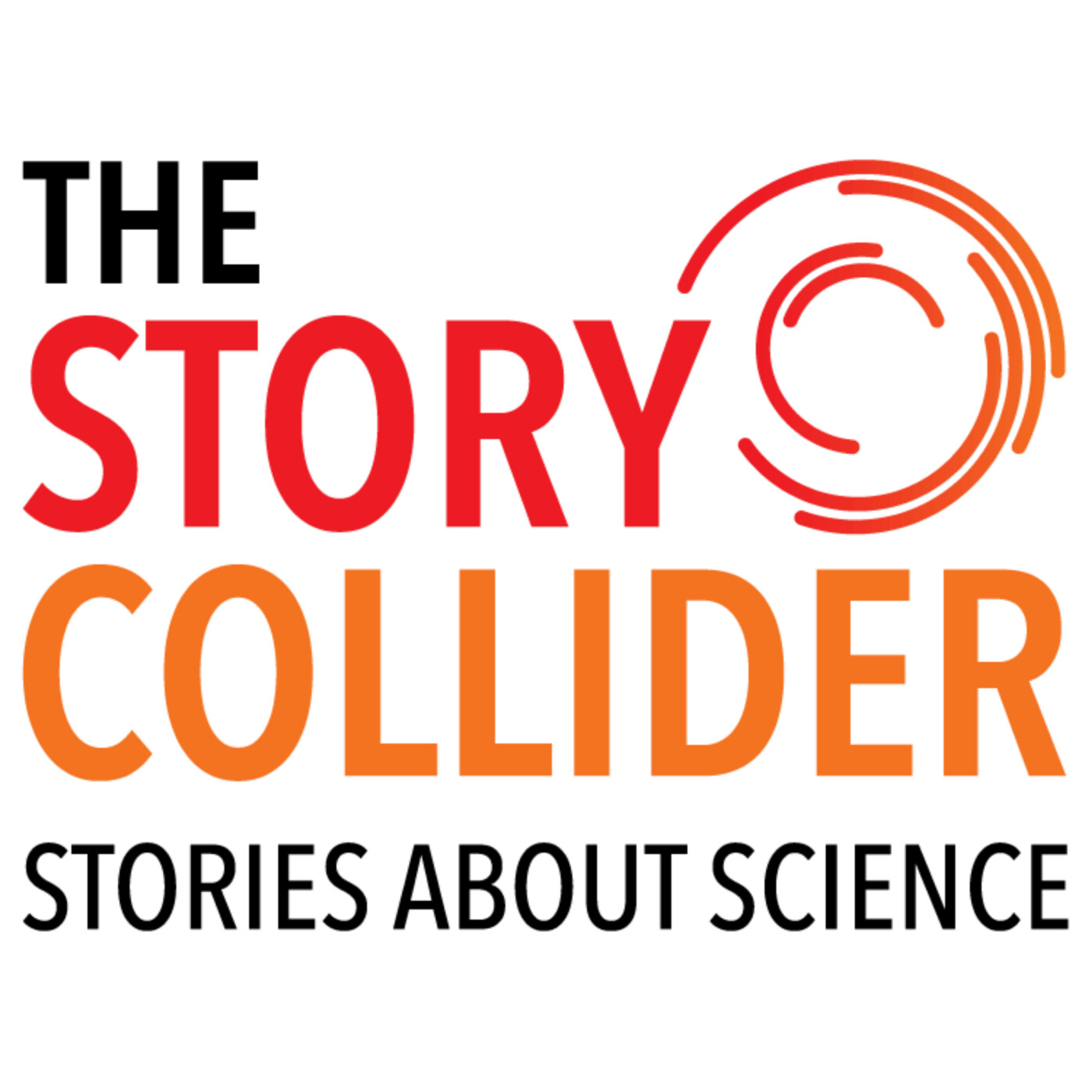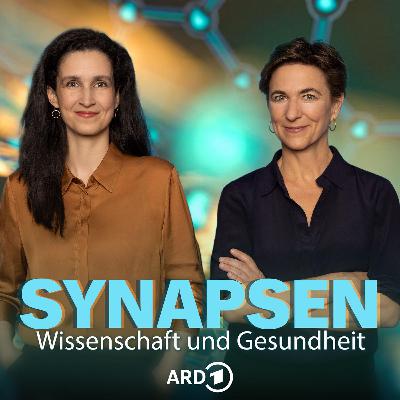Reframe: Stories about art helping mental health - The Story Collider
Description
In this week’s episode, we explore how creativity, humor, and connection can be powerful tools for mental health and healing.
Part 1: When anxiety starts taking over her life, Jude Treder-Wolff signs up for an improv class.
Part 2: Counselor Belinda Arriaga and emergency medicine doctor Nancy Ewen join forces to collect scientific evidence of the power of culturally responsive mental health care.
Jude Treder-Wolff is a creative arts therapist, writer/performer and trainer with Lifestage, Inc, a company that provides creative personal and professional development workshops and classes. She believes that creativity is a renewable resource that is the energy of change anyone can tap into for healing, change and growth. She hosts (mostly) TRUE THINGS, a game wrapped in a true storytelling show performed once a month in Port Jefferson, NY and brings storytelling workshops to the Sandi Marx Cancer Wellness Program and Seniors Program at the Sid Jacobsen Jewish Community Center and the Alzheimer’s Education and Resource Center on Long Island, the National Association of Social Workers in NYS as well as other social service organizations. She has been featured on many shows around the country, including RISK! live show and podcast, Generation Women, Mortified, Story District in Washington D.C., Ex Fabula in Milwaukee WI and PBS Stories From The Stage.
Dr. Belinda Hernandez-Arriaga, LCSW, is an educator, advocate, and visionary leader fueled by love and courage. As the Founder and Executive Director of Ayudando Latinos A Soñar (ALAS) in Half Moon Bay, she has transformed the farmworker community, infusing it with cultural pride and unyielding hope. Under her leadership, the Coast’s first affordable housing for farmworker elders became a reality, and mental health care for immigrants was reimagined with arts, culture, and community at the center. A beloved mentor and award-winning author of a children’s book on family separation, Belinda championed farmworkers’ needs during the pandemic and led her community’s healing after a mass shooting. From the southern border to the White House, her advocacy has touched countless lives and inspires change rooted in our collective humanity. A passionate educator, Dr. Hernandez-Arriaga teaches at the University of San Francisco, inspiring the next generation of counselors and activists. At ALAS, She has built groundbreaking partnerships with USF and Stanford to lead pioneering research on the power of culturally responsive mental health care. She has helped to publish works like There Is a Monster in My House, Cultura Cura, and Olvidados Entre la Cosecha, which illuminate the emotional experiences of undocumented and mixed-status youth. Belinda has presented ALAS’s findings at major conferences such as the American Psychological Association and the Pediatric Academic Societies, resulting in groundbreaking tools including the first-ever Spanish-language instrument to measure immigration trauma. Dr. Belinda's work has positioned ALAS as a national model for community-driven, mental health programs that champion the belief that La Cultura Cura, that culture cures. Belinda also co-founded the Latino Advisory Council in Half Moon Bay, helped launch the Latino Trauma Institute, and actively collaborates with Bay Area Border Relief. A former San Mateo County District 3 Arts Commissioner and inductee of the San Mateo County Women’s Hall of Fame, Belinda is an active civic leader. She is also a proud mother of three and holds a Doctor of Education from the University of San Francisco.
Dr. N Ewen Wang is a Professor Emerita of Emergency Medicine and Pediatrics. She was Associate Director of Pediatric Emergency Medicine at the Stanford University School of Medicine for more than 20 years. Her career has been committed to serving vulnerable populations and decreasing health disparities locally as well as globally. She founded the Stanford section in Social Emergency Medicine, a field which uses the perspective of the Emergency Department (ED) to identify patient social needs which contribute to disease and to develop solutions to decrease these health disparities. As such, she directed the Social Emergency Medicine fellowship and was medical director for a student-run group which screened ED patients for social needs (Stanford Health Advocates and Research in the ED (SHAR(ED)). She has worked clinically and educated trainees and faculty globally, including at sites in Chiapas, Mexico; Borneo Indonesia and Galapagos, Ecuador. Her current research and advocacy includes investigating disparities in specialty care access and quality, including trauma and mental health. Dr. Wang also works with community organizations to understand best models to provide wraparound social and medical services for unaccompanied immigrant children, for which she has received Stanford Impact Labs, Center for Innovation in Global Health and Office of Community Engagement grants. She presently serves as a medical expert with the Juvenile Care Monitoring team for the U.S. Federal Court overseeing the treatment of migrant children in U.S. detention. In 2023, she was appointed as the inaugural Faculty Director of the Health Equity Education MD/Masters Program at the Stanford School of Medicine. Dr. Wang completed an Emergency Medicine Residency at Stanford and then a Pediatric Emergency Medicine Fellowship between LPCH and Children's Oakland.
See Privacy Policy at https://art19.com/privacy and California Privacy Notice at https://art19.com/privacy#do-not-sell-my-info.





















